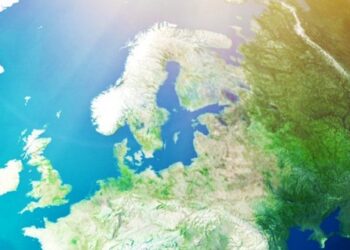European Union member states have agreed on a 14th set of sanctions against Russia in response to its actions in Ukraine, which notably includes new restrictions targeting Russian gas, Reuters highlights.
These measures prohibit the re-export of Russian liquefied natural gas (LNG) in EU waters, but they do not go as far as banning imports, similar to the 2022 embargo on Russian seaborne oil.
Some EU nations continue to receive pipeline gas from Russia via Ukraine. Despite these actions, experts in the gas market suggest that the impact will be minimal, as only about 10% of Russian LNG exports involve trans-shipments through EU ports to Asia.
Additionally, the sanctions package targets three specific Russian LNG projects and includes provisions enabling Sweden and Finland to potentially terminate their contracts for Russian LNG.
As explained, the package also strengthens controls on the clandestine shipping operations that transport Russian oil beyond the price limits established for Russian crude by the Group of Seven (G7) countries.
What is the dark/shadow fleet?
The “dark fleet” or “shadow fleet” comprises primarily older tankers, many of which have not undergone recent inspections and lack proper maintenance. Ownership of these vessels is often unclear, and they frequently operate without adequate insurance coverage, seeking to evade sanctions and mitigate high insurance costs. This increases the risk of oil spill or collision. This could also result in a participating shipowner evading its liability under the relevant liability and compensation treaties.
In total, 47 new organizations and 69 individuals have been included in the EU sanctions list, increasing the total to 2,200 entries. Diplomats anticipate that the package will receive formal approval during the upcoming meeting of EU foreign ministers on Monday.
































































